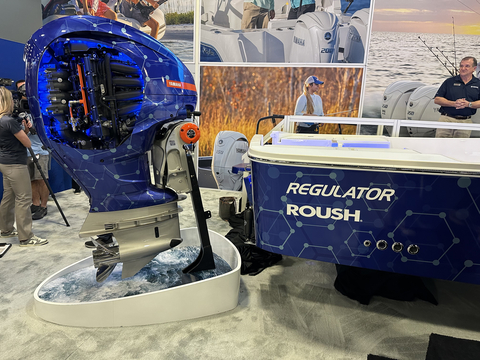
Breaking News
 A Weird Obsession - and a Strange Duality
A Weird Obsession - and a Strange Duality
 Debt, Inflation, and the Illusion of Protection
Debt, Inflation, and the Illusion of Protection
 Newsom Gives $90 Million in 'Emergency' Funds to Planned Parenthood
Newsom Gives $90 Million in 'Emergency' Funds to Planned Parenthood
 Winter survival guide: Essential skills for thriving in snow and ice
Winter survival guide: Essential skills for thriving in snow and ice
Top Tech News
 New Spray-on Powder Instantly Seals Life-Threatening Wounds in Battle or During Disasters
New Spray-on Powder Instantly Seals Life-Threatening Wounds in Battle or During Disasters
 AI-enhanced stethoscope excels at listening to our hearts
AI-enhanced stethoscope excels at listening to our hearts
 Flame-treated sunscreen keeps the zinc but cuts the smeary white look
Flame-treated sunscreen keeps the zinc but cuts the smeary white look
 Display hub adds three more screens powered through single USB port
Display hub adds three more screens powered through single USB port
 We Finally Know How Fast The Tesla Semi Will Charge: Very, Very Fast
We Finally Know How Fast The Tesla Semi Will Charge: Very, Very Fast
 Drone-launching underwater drone hitches a ride on ship and sub hulls
Drone-launching underwater drone hitches a ride on ship and sub hulls
 Humanoid Robots Get "Brains" As Dual-Use Fears Mount
Humanoid Robots Get "Brains" As Dual-Use Fears Mount
 SpaceX Authorized to Increase High Speed Internet Download Speeds 5X Through 2026
SpaceX Authorized to Increase High Speed Internet Download Speeds 5X Through 2026
 Space AI is the Key to the Technological Singularity
Space AI is the Key to the Technological Singularity
 Velocitor X-1 eVTOL could be beating the traffic in just a year
Velocitor X-1 eVTOL could be beating the traffic in just a year
Yamaha's world-first hydrogen outboard unveiled on prototype boat

Yamaha calls its new hydrogen V8 outboard a world first for the recreational boating industry and has partnered up with Roush and Regulator Marine to install it into a working boat that will begin testing in a few months.
In developing its hydrogen outboard prototype, Yamaha adapted the technology it has used for land-based hydrogen combustion engines, including the one it installed on the Drive H2 golf cart concept revealed last month at the PGA Show. In this case, it created a hydrogen version of its flagship XTO outboard, an offshore V8 offering 425- and 450-hp ratings, the most powerful in Yamaha's outboard lineup. Yamaha has not released output specs for the hydrogen version, so we're not sure how close it comes to joining the gas XTO at the top of the Yamaha outboard family.
Building a combustion engine that can run on hydrogen is but one part of the equation; another major challenge is figuring out how to store and run the H2 to fuel it. For this aspect of the project, Yamaha turned to the experts at Roush for help.
The Roush name rings familiar to us primarily from its performance automotive division and Ford Mustang models and components, but the greater company includes engineering and clean tech arms that work in a wide variety of industries, from mobility and aerospace, to energy and defense. It has decades of experience working with hydrogen power systems across various sectors.
"When you look at Roush's history with hydrogen, it ranges from land speed record vehicles to spacecraft," explains Matt Van Benschoten, vice president of advanced engineering at Roush. "A lot of that knowledge we've acquired over the years, we are now applying directly to this Yamaha project. We are the fuel systems integrator, responsible for fuel systems designs, all of the specifications development, physical integration, safety system analysis, as well as testing and development. Yamaha is trying to determine if hydrogen can successfully be used in this market, and I think we will find out the answer is 'yes.'"



